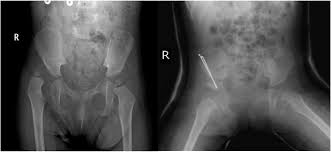In a groundbreaking study published in Nature Mental Health, researchers from the University of Warwick have uncovered compelling evidence highlighting the profound impact of diet on brain health, cognitive function, and mental well-being. The study, which analyzed the dietary habits of a vast sample of 181,990 participants from the UK Biobank, offers fresh insights into how food choices shape not only physical health but also mental acuity.
Through a meticulous examination that encompassed cognitive function tests, blood metabolic biomarkers, brain imaging, and genetic analysis, the researchers delved into the intricate relationship between nutrition and overall well-being. The participants’ food preferences were meticulously cataloged through an online questionnaire, with machine learning algorithms employed to analyze the extensive dataset.
The findings underscored a compelling association between a balanced diet and enhanced mental health, superior cognitive functions, and increased gray matter volume in the brain—a factor linked to intelligence. Participants who adhered to a diverse and nutritious diet exhibited notably better outcomes across all measures compared to those with less varied dietary habits.
Notably, the study emphasized the importance of gradual dietary modifications, particularly for individuals accustomed to highly palatable but nutritionally deficient foods. By gradually reducing sugar and fat intake over time, individuals may naturally transition towards healthier dietary choices, promoting long-term well-being.
Furthermore, the research shed light on the interplay between genetic factors and dietary patterns in shaping brain health, underscoring the multifaceted nature of well-being.
Lead author Professor Jianfeng Feng stressed the critical role of early intervention in fostering healthy dietary habits, emphasizing the pivotal role of families and schools in providing a supportive environment conducive to physical and mental health.
Addressing the broader implications of the study, Professor Feng advocated for proactive public policies aimed at promoting accessible and affordable healthy eating options. He highlighted the importance of mitigating socioeconomic barriers to healthy eating and empowering individuals to make informed dietary choices for improved public health outcomes.
Co-author Wei Cheng from Fudan University echoed these sentiments, emphasizing the urgency of promoting nutritional awareness and fostering healthier eating habits across diverse populations.
Commenting on the study, Dr. Richard Pemberton, a Certified Lifestyle Physician and GP at Hexagon Health, emphasized the profound implications of poor dietary choices on both physical and mental health. Dr. Pemberton underscored the need for decisive government action to optimize health outcomes, particularly among children, to safeguard future generations from the risks of chronic disease.
The research represents a significant stride forward in understanding the intricate relationship between diet and brain health, advocating for concerted efforts to prioritize nutritional awareness and cultivate healthier eating habits for improved well-being.










